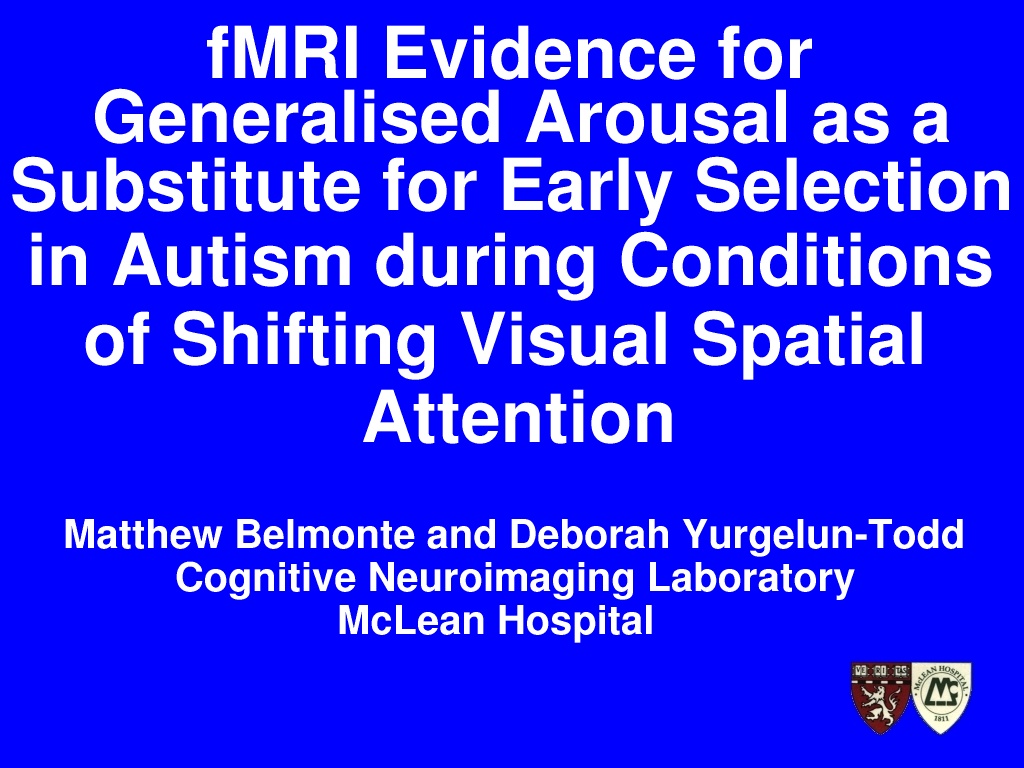 I'm going to tell you about some fMRI work that addresses the
neurophysiological mechanisms by which people with autism pay attention
during rapidly changing conditions. It turns out that these mechanisms
differ from normal in interesting ways, even when behavioural
performance is intact. In particular, I'm going to present
physiological evidence that people with autism accomplish attentional
tasks by substituting a generalised arousal for dysfunctional early
selective attention, and then suppressing irrelevant stimuli at a later
stage of processing.
I'm going to tell you about some fMRI work that addresses the
neurophysiological mechanisms by which people with autism pay attention
during rapidly changing conditions. It turns out that these mechanisms
differ from normal in interesting ways, even when behavioural
performance is intact. In particular, I'm going to present
physiological evidence that people with autism accomplish attentional
tasks by substituting a generalised arousal for dysfunctional early
selective attention, and then suppressing irrelevant stimuli at a later
stage of processing.
`fMRI Evidence for Generalised Arousal as a Substitute for Early Selection in Autism during Conditions of Shifting Visual Spatial Attention', Matthew Belmonte, 10 November 2001


![[back to contents]](../left_arrow.gif)
![[contents]](../up_arrow.gif)
![[next]](../right_arrow.gif)